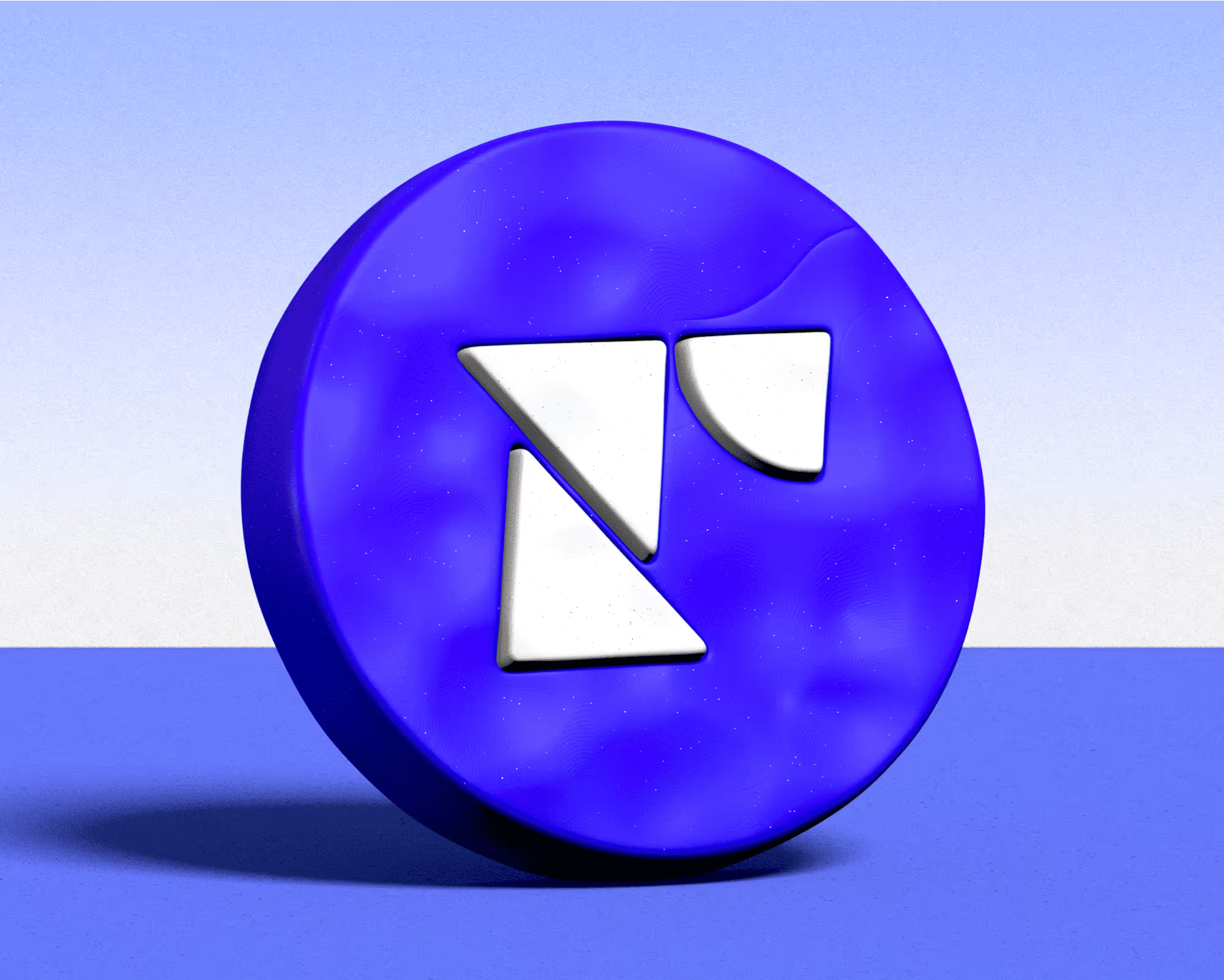Point of Contact
A point of contact (POC) is an individual or department that serves as the central coordinator for all communication and information concerning a specific activity, project, or customer relationship. This designated entity acts as the organization's representative, ensuring that all inquiries are handled efficiently and accurately. By centralizing communication, a POC streamlines interactions and is crucial in situations where information is time-sensitive.
Importance of a Point of Contact
A dedicated point of contact eliminates miscommunication and ensures timely solutions. It prevents customer inquiries from getting lost or repeated as they are passed between departments. This streamlined process creates internal accountability and boosts efficiency, preventing customer churn.
For the customer, a consistent POC helps build trust and fosters a stronger relationship. Knowing there is a reliable person to turn to improves satisfaction and creates a positive brand image. This approach is key to maintaining long-term customer loyalty.
Roles and Responsibilities
A point of contact is the face of the company for a specific interaction or relationship. Their primary role is to manage communication and ensure a smooth experience for the client or partner. Key responsibilities include:
- Communication: Serving as the primary liaison for all inquiries and updates.
- Coordination: Managing the flow of information between the customer and internal teams.
- Relationship Building: Fostering trust and maintaining positive relations with clients.
- Problem-Solving: Ensuring customer issues are addressed and resolved efficiently and effectively.
Point of Contact vs. Touchpoint
While both are crucial for customer interaction, a point of contact and a touchpoint serve distinct functions in the customer journey.
- Point of Contact: A specific person or department managing all communication for a project or relationship. This centralized model provides accountable, personalized service, building trust and ensuring timely solutions. It is ideal for complex sales or high-touch support where a single liaison is critical for clarity and efficiency.
- Touchpoint: Any interaction a customer has with a brand, from seeing an ad to using a product. This offers a holistic view of the customer journey, helping companies optimize every interaction. Mapping touchpoints is vital for improving the overall brand experience and identifying friction points across marketing, sales, and service.
Effective Communication Strategies
Effective communication is the cornerstone of a successful point of contact. It involves more than just relaying information; it's about building rapport and ensuring clarity. Adopting specific strategies can significantly enhance the customer experience.
- Personalization: Address clients by name and avoid robotic language to build a stronger connection.
- Clarity: Use simple, direct language and ensure the customer understands the next steps.
- Positivity: Frame responses constructively and focus on solutions to reassure the customer.
Common Challenges and Solutions
Even with a POC, challenges can arise, but clear strategies can overcome them.
- Miscommunication: Establish a single POC to prevent mixed messages and ensure clarity.
- Delays: Use automation tools to manage requests and provide timely responses.
- Inconsistency: Unify team communication with clear guidelines for a consistent brand voice.
Frequently Asked Questions about Point of Contact
Can a department be a point of contact?
Yes, a department like "Customer Support" can serve as a POC. This ensures inquiries are always handled by a knowledgeable team member, even if a specific individual is unavailable, providing consistent and reliable coverage for clients.
How is a POC different from an account manager?
An account manager is a specific type of POC focused on long-term client relationships. The term POC is broader and can refer to any designated contact for a project, partnership, or specific inquiry, not just account management.
When should a business establish a POC?
A business should establish a POC for any project or client relationship where streamlined communication is critical. It is especially vital for complex, high-value accounts where a single, clear contact point prevents confusion and builds trust.
Other terms
B2B Data Platform
Learn about B2B data platform, including key benefits of B2B data platforms, choosing the right B2B data platform, challenges in implementing B2B data platforms.
Account Development Representative
An Account Development Representative (ADR) identifies and qualifies new business opportunities, creating a pipeline for account executives.
SFDC
SFDC stands for Salesforce Dot Com, a popular cloud-based CRM platform that helps companies manage their customer interactions and data.
Objection Handling in Sales
Objection handling in sales is the process of responding to a prospect's concerns about a product or service to move the deal forward.
Buying Intent
Buying intent is the collection of online cues and behaviors that signal a prospect is actively researching and moving toward a purchase decision.
B2B Intent Data
Learn about B2B intent data, including how B2B intent data enhances sales strategies, sources of B2B intent data, leveraging B2B intent data for competitiveness.
Sales Dashboard
A sales dashboard is a visual tool that centralizes and displays key sales data, metrics, and KPIs to help teams track performance and goals.
Precision Targeting
Precision targeting is a marketing strategy that uses data to identify and reach a highly specific audience most likely to convert.
Annual Recurring Revenue (ARR)
Annual Recurring Revenue (ARR) is the predictable income a company expects to receive from its customers over a one-year period.
Gamification
Gamification applies game mechanics like points, badges, and leaderboards to non-game activities to boost engagement and motivate users.
Chatbots
Chatbots are AI-powered programs that simulate human conversation. They interact with users via text or voice, typically for customer support.
Order Management
Order management is the end-to-end process of tracking customer orders from placement to fulfillment, ensuring a seamless customer experience.
Account-Based Sales
Account-Based Sales (ABS) is a focused B2B strategy where sales and marketing teams treat high-value accounts as individual markets of one.
Lead Enrichment
Lead enrichment adds third-party data to your raw lead lists, creating fuller prospect profiles for more effective and personalized outreach.
User Interface
A User Interface (UI) is the point where humans and computers interact. It encompasses all visual elements like screens, icons, and buttons.
Microservices
Microservices is an architecture where apps are built as a collection of small, independent services that communicate with each other over APIs.
Target Account List
A Target Account List (TAL) is a focused list of high-value companies that a business specifically aims to convert into customers.
Demand Generation Framework
A demand generation framework is a strategic process for creating awareness and interest in your product, ultimately driving new business.
Key Accounts
Key accounts are a company's most valuable customers, vital due to their significant revenue contribution and strategic importance for growth.
Account-Based Marketing Software
Account-Based Marketing (ABM) software helps teams coordinate personalized marketing and sales efforts to land high-value customer accounts.
GTM
A go-to-market (GTM) strategy is an action plan that outlines how a company will reach target customers and achieve a competitive advantage.
Single Page Applications
A Single Page Application (SPA) is a web app that interacts with the user by dynamically rewriting the current page rather than loading new pages.
Buyer Intent Data
Learn about buyer intent data, including sourcing and interpreting buyer intent data, & key metrics in buyer intent analysis.
Responsive Design
Responsive design is an approach where a website's layout adapts to the user's screen size, providing an optimal experience on any device.
Application Performance Management
Application Performance Management (APM) monitors and manages an application's performance, availability, and the experience of its end-users.
Stress Testing
Stress testing is a type of software testing that determines a system's robustness by pushing it beyond its normal operational capacity.
Content Management System
A Content Management System (CMS) is software for creating, managing, and modifying website content without needing specialized technical skills.
NoSQL
NoSQL ("Not only SQL") databases offer a flexible alternative to relational models, excelling at managing large and unstructured data sets.
Account Executive
An Account Executive (AE) is a sales professional responsible for closing new business deals and managing existing client relationships to drive revenue.
B2B Data Erosion
Learn about B2B data erosion, including causes of B2B data decay, strategies to combat data erosion, & measuring the impact of data erosion.
Video Selling
Video selling uses personalized video messages to engage prospects, build rapport, and guide them through the sales funnel to close more deals.
Dynamic Pricing
Dynamic pricing is a strategy where businesses set flexible prices for products or services based on current market demands and other factors.
Sales Funnel
A sales funnel is a model illustrating the customer's journey from initial awareness to the final purchase, narrowing down leads at each stage.
Performance Plan
A performance plan is a formal document outlining an employee's goals, expectations, and metrics for success over a specific period.
Use Case
A use case is a detailed description of how a user interacts with a system to achieve a specific goal, outlining the steps from start to finish.
Marketing Qualified Lead (MQL)
A Marketing Qualified Lead (MQL) is a prospect who has shown interest based on marketing efforts but isn't yet ready for a sales conversation.
Headless CMS
A headless CMS is a back-end content repository that delivers content via API to any front-end, decoupling the content from its presentation layer.
X-Sell
X-Sell, or cross-selling, is a sales strategy of selling additional, related products or services to an existing customer base.
Average Revenue per User
Average Revenue per User (ARPU) is a key performance indicator that calculates the average revenue generated from each user or subscriber.
Objection Handling
Objection handling is the process of responding to a prospect's concerns or hesitations about a product or service to move a deal forward.
Warm Outbound
Warm outbound is a sales strategy for contacting prospects who've shown interest in your brand through prior engagement, like website visits.
Direct Sales
Direct sales involves selling products directly to consumers in a non-retail setting, such as at home, online, or person-to-person.
Buyer Intent
Learn about buyer intent, including understanding buyer intent signals, strategies to capture buyer intent, & buyer intent vs. customer interest.
B2B Data
Learn about B2B data, including sources and types of B2B data, leveraging B2B data for sales success, & ensuring the accuracy of B2B data.
Customer Acquisition Cost
Customer Acquisition Cost (CAC) is the total cost a business spends to gain a new customer. It includes all sales and marketing expenses.
FAB Technique
The FAB technique is a sales framework connecting product features to advantages and then to the specific benefits for the customer.
Representational State Transfer Application Programming Interface
A Representational State Transfer (REST) API is a web service that uses a simple, stateless architecture for systems to communicate online.
Mobile Compatibility
Mobile compatibility ensures your site or app works flawlessly on mobile devices, like smartphones and tablets, for a seamless user experience.
Commission
A commission is a service charge paid to an agent for a transaction. It's typically a percentage of the sale, rewarding performance directly.
Copyright Compliance
Copyright compliance is adhering to laws that protect creative works. It involves legally using content by obtaining permission or licenses.
Progressive Web Apps
Progressive Web Apps (PWAs) are websites that look and feel like native mobile apps, offering features like offline access and push notifications.
Voice Broadcasting
Voice broadcasting is an automated system that delivers a pre-recorded voice message to a large list of phone numbers simultaneously.
Account-Based Selling
Account-Based Selling is a B2B strategy where sales and marketing treat high-value accounts as markets of one, using personalized outreach.
Sales Territory
A sales territory is a specific group of customers or a geographic area that a salesperson or sales team is responsible for managing.
B2B Data Enrichment
Learn about B2B data enrichment, including benefits of B2B data enrichment, implementing B2B data enrichment strategies, B2B data enrichment vs. data cleaning.
Customer Retention
Customer retention refers to the strategies and activities a company uses to prevent customer churn and encourage them to continue buying.
Employee Engagement
Employee engagement is the emotional commitment an employee has to their organization, motivating them to contribute to the company's success.
SAM
Serviceable Addressable Market (SAM) is the portion of the market your business can realistically serve with its current products and sales channels.
Cohort Analysis
Cohort analysis is a behavioral analytics tool that groups users with common traits to track their actions and engagement over time.
RESTful API
A RESTful API is a web service interface that uses HTTP requests to access and use data, adhering to the constraints of REST architecture.
Custom API integration
A custom API integration is a bespoke connection between software, enabling them to communicate and share data to meet unique business requirements.
Lead Scoring
Lead scoring is the process of assigning points to leads based on their attributes and actions to determine their sales-readiness.
Audience Targeting
Audience targeting is the process of segmenting consumers into specific groups to deliver more personalized and relevant marketing messages.
Request for Information
A Request for Information (RFI) is a formal process for gathering information from potential suppliers before issuing a more detailed proposal.
Sales Partnerships
Sales partnerships are strategic alliances where two companies co-sell products to expand their reach, generate new leads, and increase revenue.
Programmatic Display Campaign
Programmatic display campaigns use automation to buy and sell digital ad space in real-time, targeting specific audiences across the web.
Sales Calls
A sales call is a real-time conversation between a salesperson and a prospect, aiming to persuade them to purchase a product or service.
Awareness Buying Stage
The awareness stage is the first step in the buyer's journey, where a potential customer realizes they have a problem or an opportunity to explore.
Inside Sales
Inside sales is a remote sales process where reps sell products or services via phone, email, and other digital tools instead of in person.
Email Personalization
Email personalization uses subscriber data—like their name, interests, or past behavior—to create highly relevant and targeted email campaigns.
No Spam
“No Spam” is a commitment to sending only relevant, solicited messages. It means avoiding bulk, unwanted emails to respect the recipient's inbox.
Call for Proposal
A Call for Proposal (CFP) is a document that solicits proposals, often through a bidding process, for a specific project or service.
Mid-Market
Mid-market companies are businesses larger than small businesses but smaller than large enterprises, often defined by revenue or employee size.
Logo Retention
Logo retention is a key B2B metric that measures a company's ability to retain its customers, or 'logos,' over a specific period.
Sales Coaching
Sales coaching is a process where managers help reps improve their skills and performance through personalized feedback, training, and guidance.
Product Recommendations
Product recommendations are a marketing strategy that uses customer data to suggest relevant products, boosting sales and customer engagement.
Product-Led Growth
Product-Led Growth (PLG) is a business strategy where the product itself drives user acquisition, conversion, and expansion.
Competitive Intelligence (CI)
Competitive intelligence (CI) is the ethical gathering and analysis of market data to inform strategic business decisions and gain an advantage.
Firmographic Data
Firmographic data is information used to classify firms. It includes attributes like industry, employee count, location, and annual revenue.
Sales Prospecting Software
Sales prospecting software automates the process of finding, contacting, and tracking potential customers to help sales teams build their pipeline.
Consumer Relationship Management
Consumer Relationship Management (CRM) is a strategy for managing all of a company's relationships and interactions with its customers.
Sales Pipeline
A sales pipeline is a visual representation of where prospects are in the sales process, from the first contact to the final sale.
Scrum
Scrum is an agile framework that helps teams structure and manage their work through a set of values, principles, and practices.
Account-Based Sales Development
Account-Based Sales Development (ABSD) is a focused strategy where SDRs target key stakeholders within specific, high-value accounts.
Digital Advertising
Digital advertising is the practice of delivering promotional content to users through various online and digital channels like social media or search engines.
Buying Signal
A buying signal is any action from a prospect that indicates they are interested in making a purchase, helping sales teams prioritize leads.
Sales Coach
A sales coach is a mentor who trains and guides sales reps to enhance their skills, boost performance, and ultimately close more deals effectively.
White Label
White labeling is when a company puts its own branding on a product or service that was actually produced by a different company.
User Interaction
User interaction is any action a user takes within a digital interface, like clicking a button, scrolling a page, or filling out a form.
User-generated Content
User-generated content (UGC) refers to any form of content, like images, videos, or text, created and shared by users on online platforms.
AI Data Enrichment
AI data enrichment uses artificial intelligence to automatically enhance and update raw data, making it more complete, accurate, and valuable.
Sales Kickoff
A sales kickoff (SKO) is an annual event for a sales team to celebrate wins, align on goals, and get motivated for the upcoming year.
Cold Calling
Cold calling is a sales tactic where reps contact potential customers by phone who haven't previously expressed interest in their product or service.
Buying Committee
A buying committee is a group of stakeholders within an organization who are jointly responsible for making major purchasing decisions.
Webhooks
Webhooks are automated messages sent by an app when a specific event occurs. They push real-time data to another app's unique URL.
Demand Generation
Demand generation is the process of creating awareness and interest in your products to build a pipeline of qualified leads for your sales team.
Sales Intelligence
Sales intelligence is technology that gathers and analyzes data to help salespeople find and understand prospects and existing clients.
Customer Relationship Management Systems
A Customer Relationship Management (CRM) system is a tool that centralizes customer data to help manage interactions and nurture relationships.
Marketing Attribution Model
A marketing attribution model is a framework for assigning credit to the marketing touchpoints that lead a customer to convert.
Sales Engineer
Sales Engineers blend deep technical knowledge with sales acumen, demonstrating a product's value and solving customer problems to drive revenue.

























